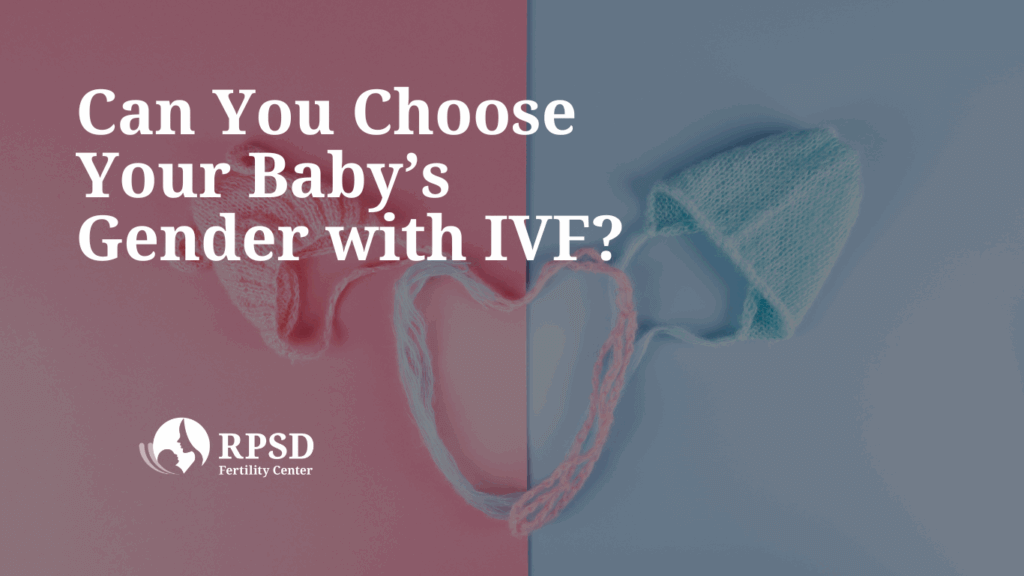
For many hopeful parents, the question of whether you can choose your baby’s gender with in vitro fertilization (IVF) comes up during the family-building journey. Advances in reproductive technology now make it possible to know the sex of embryos before transfer — but there are important medical, ethical, and legal considerations to keep in mind.
During an IVF cycle, multiple eggs are retrieved and fertilized in the lab. A few days later, embryos can undergo preimplantation genetic testing for aneuploidy (PGT-A), which screens for chromosomal health. This test also reveals the genetic sex (XX for female, XY for male). This means gender is known before transfer, and patients may request to transfer a specific embryo.
While gender selection is scientifically possible, not all fertility clinics offer it for non-medical reasons. At RPSD, we carefully consider each case to ensure treatments align with medical best practices, ethical standards, and patient values. We also follow guidelines set forth by the American Society for Reproductive Medicine (ASRM).
For most patients, the primary focus of IVF is achieving a healthy pregnancy. However, if you have a medical need related to a sex-linked condition, gender selection may be an important part of your treatment plan. For those considering family balancing, we recommend scheduling a consultation to discuss the medical, ethical, and emotional factors involved.
If you’re wondering whether gender selection is possible — or right for your family — the best next step is to schedule a consultation with our physicians. At Reproductive Partners Fertility Center–San Diego, we provide personalized guidance and compassionate care to help you make informed decisions on your path to parenthood.
Our skilled fertility specialists are here to help. Contact us today and let’s discuss the next phase of your fertility journey.
Our skilled fertility specialists are here to help. Contact us today and let’s discuss the next phase of your fertility journey.